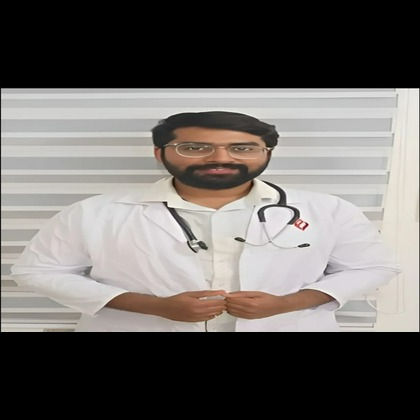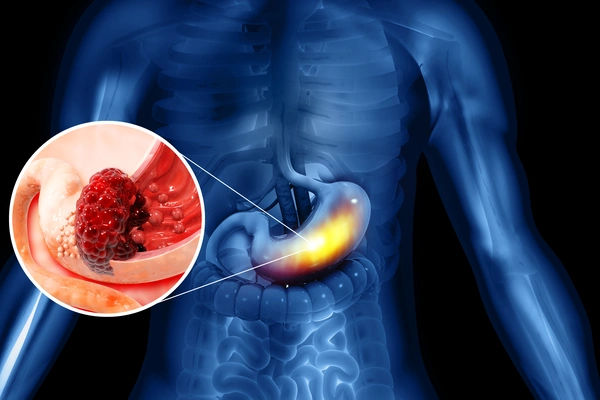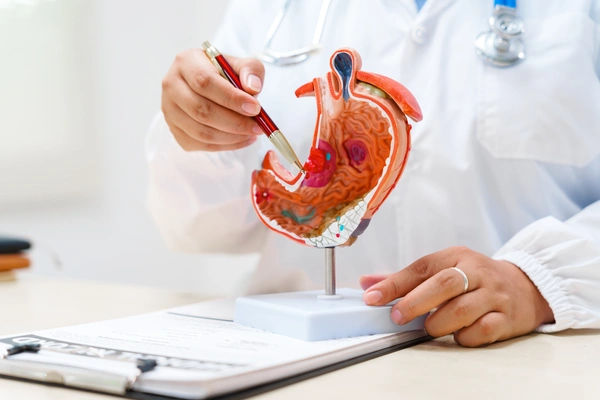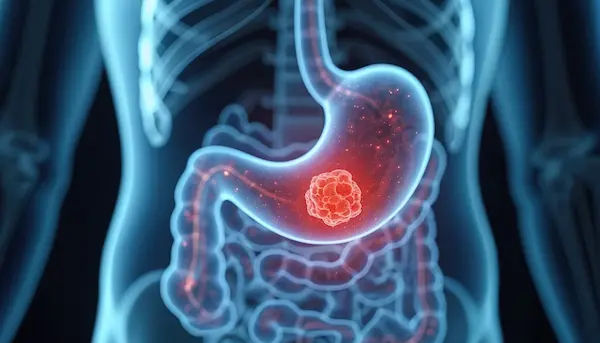Guide to Stomach Cancer Awareness Month
Learn the importance of Stomach Cancer Awareness Month with a guide to key symptoms, risk factors, early detection, and hopeful treatment options.


Every November, the world comes together to observe Stomach Cancer Awareness Month, a crucial campaign dedicated to shedding light on a disease that affects millions globally. While not the most common cancer, stomach (or gastric) cancer remains a significant health challenge, often diagnosed at later stages due to its vague initial symptoms. This month is symbolized by the burgundy ribbon, representing a unified front of patients, survivors, families, and medical professionals committed to changing the narrative. This comprehensive guide is designed to empower you with knowledge. We will delve into the critical aspects of stomach cancer—from recognizing the subtle early warnings and understanding your risk factors to exploring modern treatment options and powerful prevention strategies. Our goal is to move beyond awareness and into action, providing you with the information needed to advocate for your health and support others in the fight.
What is Stomach Cancer Awareness Month?
Stomach Cancer Awareness Month is an annual international health campaign observed throughout November. It serves as a focused effort to amplify the conversation about gastric cancer, a disease that often doesn't receive the same level of public attention as other cancers.
The Significance of the Burgundy Ribbon
The burgundy ribbon is the universal symbol for stomach cancer awareness. Wearing or displaying this ribbon in November shows solidarity with those affected and helps spark conversations. It’s a simple yet powerful tool for raising visibility and reminding people that this disease needs our attention and research funding.
Goals of the Awareness Campaign: Education, Advocacy, and Support
The campaign operates on three core pillars:
1. Education: Dispelling myths and providing accurate, accessible information about symptoms, risk factors, and prevention to the public and healthcare providers.
2. Advocacy: Lobbying for increased government and private funding for research into early detection methods and more effective treatments.
3. Support: Creating a robust community for patients and caregivers, offering resources, hope, and a sense that they are not alone in their journey.
What is Stomach Cancer?
Stomach cancer, medically known as gastric cancer, occurs when normally healthy cells within the stomach lining grow uncontrollably, forming a tumor. This process typically happens slowly over many years, often beginning with precancerous changes that rarely cause symptoms.
Common Types of Gastric Cancer
While there are several types, one dominates the statistics.
- Adenocarcinoma: The Most Prevalent Form
This type accounts for about 90-95% of all stomach cancers. It develops from the glandular cells that form the
innermost lining of the stomach (the mucosa), which produce mucus and other fluids.
- Other Rare Types (GIST, Lymphoma)
- Gastrointestinal Stromal Tumors (GISTs) start in special nerve cells found in the wall of the stomach.
- Lymphomas are cancers of the immune system tissue that can sometimes start in the stomach wall.
Consult Top Specialists
Early and Advanced Symptoms
One of the biggest challenges with early signs of stomach cancer is how easily they can be mistaken for common, less serious issues like a stomach virus or acid reflux.
Early-Stage Symptoms That Are Easy to Overlook
- Persistent indigestion or heartburn
- A feeling of bloating or fullness after eating small meals
- Mild, persistent nausea
- Loss of appetite
- Frequent stomach discomfort
Symptoms of Advanced Stomach Cancer
As the cancer grows, symptoms become more severe and specific:
- Blood in the stool or vomit (which may appear black or tarry)
- Unexplained and unintentional weight loss
- Severe, persistent abdominal pain or pain after eating
- Vomiting, sometimes with blood
- Difficulty swallowing
- Fatigue and weakness due to anemia
If symptoms persist beyond two weeks, consult a doctor online with Apollo24|7 for further evaluation. Early consultation can make a critical difference.
Key Stomach Cancer Risk Factors
Understanding what increases your risk is a key step in prevention and proactive health screening.
Medical and Biological Risk Factors
- Helicobacter pylori (H. pylori) Infection: This common bacterial infection that causes stomach inflammation and ulcers is one of the leading risk factors for gastric cancer.
- Family History and Genetics: Having a parent, child, or sibling with stomach cancer increases your risk. Certain
inherited genetic syndromes also play a role. - Certain Health Conditions: Long-term stomach inflammation (gastritis), pernicious anemia, and gastric polyps can increase risk.
Lifestyle and Environmental Risk Factors
- Diet: A diet high in smoked, pickled, salty, and processed foods is strongly linked to higher rates of stomach cancer. Conversely, diets rich in fresh fruits and vegetables may lower risk.
- Smoking and Alcohol: Smokers have a significantly higher risk, particularly for cancers in the upper part of the
stomach. Heavy alcohol use may also increase risk. - Obesity: Being overweight is linked to a higher risk of cancer in the upper part of the stomach.
How is Stomach Cancer Diagnosed?
If stomach cancer is suspected based on symptoms and risk factors, doctors will recommend tests to confirm a diagnosis.
The Critical Role of Endoscopy and Biopsy
An upper endoscopy is the primary diagnostic tool. A thin, flexible tube with a tiny camera (endoscope) is passed down the throat to examine the stomach lining. If any abnormal areas are seen, the doctor can pass special tools through the endoscope to take a tissue sample (biopsy), which is then analyzed for cancer cells.
Imaging Tests: Staging the Cancer
If cancer is found, imaging tests like CT scans, PET scans, and endoscopic ultrasounds are used to determine the stomach cancer stage—how deep the cancer has grown and if it has spread to other organs. This staging process is vital for determining the best course of treatment.
Navigating Treatment Options for Gastric Cancer
Treatment is highly personalized and depends on the cancer's stage, location, and the patient's overall health.
- Surgical Procedures: Gastrectomy and Beyond
Surgery is the most common treatment to remove the cancer. A gastrectomy can be partial (removing part of the stomach) or total (removing the entire stomach). Nearby lymph nodes are also often removed.
- Adjuvant Therapies: Chemo, Radiation, and Targeted Drugs
- Chemotherapy: Uses powerful drugs to kill cancer cells, often used before surgery (neoadjuvant) to shrink tumors or after (adjuvant) to kill remaining cells.
- Radiation Therapy: Uses high-energy beams to destroy cancer cells, sometimes used in combination with chemo.
- Targeted Therapy and Immunotherapy: These newer drugs specifically target cancer cell mechanisms or boost the body's immune system to fight cancer, offering hope for advanced stomach cancer.
Can Stomach Cancer Be Prevented?
While not all cases are preventable, you can significantly reduce your risk.
- Diet and Nutrition: Foods to Embrace and Avoid
- Embrace: A diet rich in fruits and vegetables (especially citrus fruits and leafy greens), whole grains, and lean proteins.
- Avoid: Limit your intake of processed meats, salty and smoked foods, and pickled vegetables.
The Importance of Treating H. Pylori Infection
If you are diagnosed with an H. pylori infection, completing the full course of antibiotics to eradicate it is one of themost concrete actions you can take to reduce your future stomach cancer risk. Apollo24|7 offers convenient home collection for tests like H. Pylori breath tests or stool antigen tests for easy diagnosis and monitoring.
How You Can Make a Difference During Awareness Month?
You don't have to be a doctor or researcher to contribute to the cause.
- Spreading Awareness: Share facts and resources on your social media using hashtags like
#StomachCancerAwarenessMonth and #BurgundyRibbon. Organize or participate in local community events or fundraisers. - Supporting Patients and Funding Research: Donate to reputable organizations dedicated to gastric cancer research and patient support. Simply offering a listening ear to someone affected by the disease can be incredibly powerful.
Conclusion
Stomach Cancer Awareness Month serves as an annual reminder of the ongoing battle against this disease, but the lessons it teaches are year-round. Knowledge truly is power. Understanding the subtle symptoms, being aware of your personal risk factors, and adopting a proactive approach to your health are the strongest defenses you can build. While the statistics can be daunting, advancements in targeted therapy and early detection are providing new hope. Let this month be the catalyst for action—schedule that check-up, have that conversation with your family about medical history, and support the incredible community of survivors, patients, and researchers working toward a future free of stomach cancer.
Consult Top Specialists
Consult Top Specialists

Dr Mithu Bhowmick
Gastroenterology/gi Medicine Specialist
7 Years • MBBS, MD, DM(PGIMER Chandigarh)
Guwahati
Apollo Hospitals G S Road, Guwahati
Dr. Sasikamalam
General Practitioner
1 Years • MBBS
COIMBATORE
Apollo Sugar Clinic Coimbatore, COIMBATORE

Dr. Jatin Yegurla
Gastroenterology/gi Medicine Specialist
11 Years • MD (PGI), DM (AIIMS Delhi), FAGIE (AIIMS Delhi), ESEGH (UK), Gold Medalist
Hyderabad
Apollo Hospitals Jubilee Hills, Hyderabad
(675+ Patients)

Dr. Chethan T L
General Physician/ Internal Medicine Specialist
5 Years • MBBS, MD, DNB (General Medicine)
Bengaluru
Apollo Medical Center, Marathahalli, Bengaluru

Dr. Sunil Kaul
General Surgeon
30 Years • MBBS, MS, FICS, FIMSA, FMAS
Delhi
Apollo Hospitals Indraprastha, Delhi
(25+ Patients)
Consult Top Specialists

Dr Mithu Bhowmick
Gastroenterology/gi Medicine Specialist
7 Years • MBBS, MD, DM(PGIMER Chandigarh)
Guwahati
Apollo Hospitals G S Road, Guwahati
Dr. Sasikamalam
General Practitioner
1 Years • MBBS
COIMBATORE
Apollo Sugar Clinic Coimbatore, COIMBATORE

Dr. Jatin Yegurla
Gastroenterology/gi Medicine Specialist
11 Years • MD (PGI), DM (AIIMS Delhi), FAGIE (AIIMS Delhi), ESEGH (UK), Gold Medalist
Hyderabad
Apollo Hospitals Jubilee Hills, Hyderabad
(675+ Patients)

Dr. Chethan T L
General Physician/ Internal Medicine Specialist
5 Years • MBBS, MD, DNB (General Medicine)
Bengaluru
Apollo Medical Center, Marathahalli, Bengaluru

Dr. Sunil Kaul
General Surgeon
30 Years • MBBS, MS, FICS, FIMSA, FMAS
Delhi
Apollo Hospitals Indraprastha, Delhi
(25+ Patients)
More articles from Stomach Cancer
Frequently Asked Questions
1. What is the main cause of stomach cancer?
There is no single cause, but a combination of factors like chronic H. pylori infection, a diet high in smoked and salty foods, smoking, family history, and certain stomach conditions significantly increase risk.
2. Is stomach cancer curable if found early?
Yes, the prognosis is significantly better when stomach cancer is found early. Early-stage cancers that are localized have a much higher 5-year survival rate, often treated successfully with surgery. This underscores the critical importance of paying attention to persistent symptoms.
3. How can I get tested for stomach cancer?
If you have persistent symptoms or are at high risk, talk to your doctor. The primary diagnostic test is an upper endoscopy. For those concerned about H. pylori infection, non-invasive breath or stool tests are available. Apollo24|7 offers convenient home collection for relevant diagnostic tests.
4. What does the burgundy ribbon mean?
The burgundy ribbon is the international symbol for stomach cancer awareness, representing solidarity, support, and the fight against the disease.
5. What should I eat after stomach cancer surgery?
Diet after stomach cancer surgery requires significant adjustment. Patients typically need to eat smaller, more frequent meals, chew food thoroughly, focus on high-protein and high-calorie foods, and avoid sugary foods and drinks that can cause 'dumping syndrome.' A registered dietitian can provide personalized guidance.




